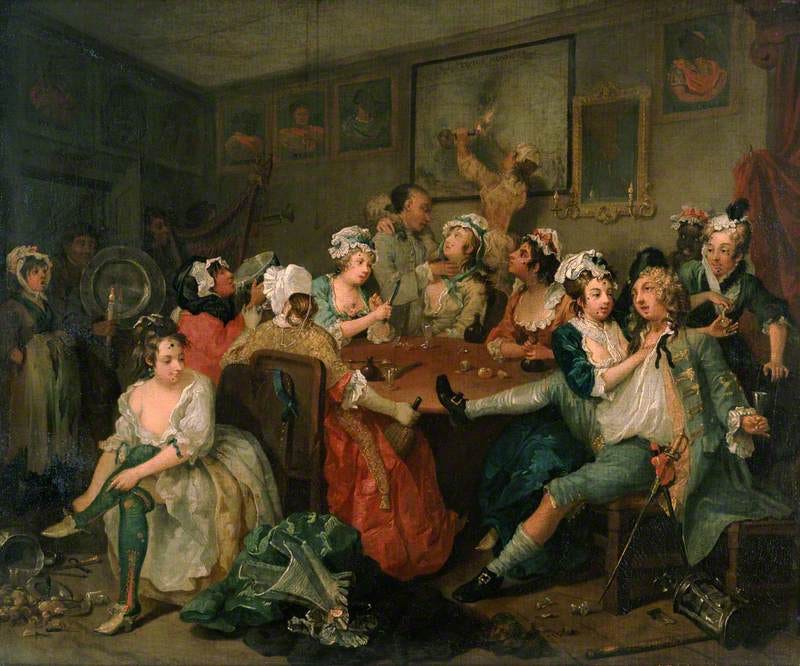Dear friends,
The gaps in the letters are giving the characters time to evolve. Writing from Paris, Lovelace appears to have soberly reflected on his actions. Revisiting Clarissa’s posthumous letter, he says, “the generosity of her mind… is what stings me most.” Lovelace now admits the power of conscience, describing it as the “conqueror of souls.”
Unfortunately Lovelace has also heard from the remorseful, double-agent Joseph Leman, who informs him that Colonel Morden is making threats against his life. Never one to lose face, Lovelace feels he must confront the Colonel and settle the matter. It will not do to wait.
“In short, I am as much convinced that I have done wrong as he can be; and regret it as much. But I will not bear to be threatened by any man in the world, however conscious of having deserved blame.”
Belford urges caution: “let not the proposal of a meeting come from you…Nobody doubts your bravery.” The death of Morden, “would but add remorse to your present remorse.” And, “If you seek not Colonel Morden, it is my opinion he will not seek you: for he is a man of principle. But if you seek him, I believe he will not shun you.”
It is too late, Lovelace is hot-headed and writes immediately to Morden, “I could not live in suspense.” Once again, Lovelace’s twisted perspective takes hold as he asserts that, if Morden agrees to duel, “it will demonstrate that malice and revenge were the predominant passions with him.” In reality, by putting himself in Morden’s way, Lovelace has given him little alternative. Morden feels obliged to accept.
If there is anything positive to take away from this month’s letters, it is that Belford’s reform is fixed:
“I am very earnest in my wishes to be admitted to the nuptial state. But I think I ought to pass some time as a probationary, till by steadiness in my good resolutions, I can convince some woman whom I could love and honour, and whose worthy example might confirm my morals that there is one libertine who had the grace to reform before age or disease put it out of his power to sin on.”
For his part, Lovelace concedes that Belford is, “an honest fellow, and a sincere and warm friend.” It sounds a lot like forgiveness.
See you again on December 18th for the final instalment!
If you would like to follow our read-along please subscribe below, visit your Substack subscription settings and make sure Letters & Libations is checked. Please get in touch if you would like to be added to the Instagram chat group.
Featured image is ‘The Rake’s Progress, plate three’ 1734, by William Hogarth, courtesy of Sir John Soane’s Museum.




